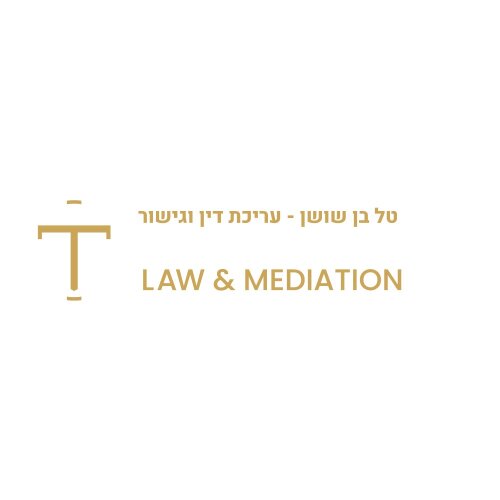Best Public-Private Partnerships (PPP) Lawyers in Rishon LeZiyyon
Share your needs with us, get contacted by law firms.
Free. Takes 2 min.
List of the best lawyers in Rishon LeZiyyon, Israel
About Public-Private Partnerships (PPP) Law in Rishon LeZiyyon, Israel
Public-Private Partnerships (PPP) are collaborative agreements between governmental bodies and private sector companies to deliver public projects or services. In Rishon LeZiyyon, as in the rest of Israel, PPPs have become an essential tool for developing infrastructure, transportation, education, healthcare, and urban renewal projects. These partnerships combine the efficiency and innovation of the private sector with the public oversight and resources of the government, providing benefits such as risk sharing, access to private financing, and accelerated project timelines.
Why You May Need a Lawyer
Legal expertise is crucial when dealing with PPPs due to the complexity and high stakes involved. Common situations where legal assistance is advisable include:
- Drafting, reviewing, and negotiating PPP contracts and tender documents.
- Ensuring compliance with Israeli and municipal laws specific to PPP arrangements.
- Managing disputes between public entities and private partners.
- Navigating procurement and bidding processes to ensure fair opportunity and adherence to regulations.
- Mitigating and allocating risks associated with infrastructure or public service projects.
- Interpreting and enforcing intellectual property, land use, or licensing rights.
- Assisting with financing, loan agreements, and tax considerations related to PPP projects.
Local Laws Overview
Key legal aspects for PPPs in Rishon LeZiyyon are grounded in national Israeli law, with municipal regulations and procedures adding local requirements. Primary laws and frameworks include:
- Mandatory Tender Laws and Regulations: These govern the bidding process for public projects, ensuring transparency and fairness for all participants.
- Planning and Building Law: This dictates zoning, permits, and environmental assessments necessary for infrastructural PPPs.
- Municipal Ordinances: Rishon LeZiyyon Municipality may set additional conditions for PPP projects, such as public consultation or local employment quotas.
- Financing and Taxation Regulations: PPPs must comply with tax laws, anti-corruption statutes, and reporting obligations.
- Dispute Resolution Mechanisms: Contracts typically require arbitration or court jurisdiction clauses for resolving disagreements.
Legal compliance at both the municipal and national levels is essential to avoid delays, penalties, or even termination of PPP contracts.
Frequently Asked Questions
What is a Public-Private Partnership (PPP)?
A PPP is a long-term agreement between a public authority and a private company to finance, build, operate, and maintain public infrastructure or services.
What types of projects use PPPs in Rishon LeZiyyon?
Common PPP projects include roads, parking facilities, schools, housing developments, water treatment plants, and urban regeneration initiatives.
How are PPPs initiated in the municipality?
PPPs often start with a government or municipal authority identifying a need, conducting feasibility studies, and issuing a public tender for private sector bids.
Who oversees PPP projects in Rishon LeZiyyon?
Oversight is conducted jointly by relevant municipal departments, national government agencies, and, in some cases, independent regulators depending on the project's type.
What are typical risks in PPP agreements?
Risks include delays, cost overruns, legal or regulatory changes, changes in demand, or disagreements regarding responsibilities and revenue sharing.
How are disputes between partners resolved?
PPP contracts usually contain specific clauses requiring mediation, arbitration, or local court proceedings to resolve disputes.
Are there specific environmental or planning requirements?
Yes, projects must comply with Israel's environmental protection laws and Rishon LeZiyyon's municipal planning regulations, including public hearings and environmental impact assessments.
Can foreign companies participate in PPPs?
Foreign companies can participate, provided they comply with Israeli tender laws and may need to establish a local presence or consortium.
What role does public consultation play in PPPs?
Public consultation is often required for significant projects, allowing community members to voice support or concerns at designated stages of planning.
How can I ensure my PPP project complies with the law?
Work closely with legal counsel experienced in PPPs and local law, and maintain open communication with municipal authorities throughout the process.
Additional Resources
If you are seeking more information or assistance regarding PPPs in Rishon LeZiyyon, consider reaching out to:
- The Rishon LeZiyyon Municipality - Economic Development or Urban Planning Departments
- The Ministry of Finance - Government Companies Authority, which regulates national PPP policy
- Israeli Chamber of Commerce and Industry, for networking with PPP specialists
- Professional organizations or law firms specializing in infrastructure and public procurement
- Independent consultants with expertise in PPP project management
Next Steps
If you believe you require legal advice for a PPP project in Rishon LeZiyyon, take the following steps:
- Document the details of your project, including goals, funding sources, stakeholders, and timeline.
- Gather relevant contracts, tenders, correspondence, and any municipal communications.
- Research and identify law firms or independent lawyers with experience in Israeli and municipal PPP law.
- Schedule a consultation to discuss your needs and obtain a legal opinion tailored to your situation.
- Stay informed about updates to local and national PPP regulations that could affect your project.
A knowledgeable legal advisor is your best resource to make sure your interests are represented and your project proceeds smoothly from inception to completion.
Lawzana helps you find the best lawyers and law firms in Rishon LeZiyyon through a curated and pre-screened list of qualified legal professionals. Our platform offers rankings and detailed profiles of attorneys and law firms, allowing you to compare based on practice areas, including Public-Private Partnerships (PPP), experience, and client feedback.
Each profile includes a description of the firm's areas of practice, client reviews, team members and partners, year of establishment, spoken languages, office locations, contact information, social media presence, and any published articles or resources. Most firms on our platform speak English and are experienced in both local and international legal matters.
Get a quote from top-rated law firms in Rishon LeZiyyon, Israel — quickly, securely, and without unnecessary hassle.
Disclaimer:
The information provided on this page is for general informational purposes only and does not constitute legal advice. While we strive to ensure the accuracy and relevance of the content, legal information may change over time, and interpretations of the law can vary. You should always consult with a qualified legal professional for advice specific to your situation.
We disclaim all liability for actions taken or not taken based on the content of this page. If you believe any information is incorrect or outdated, please contact us, and we will review and update it where appropriate.










